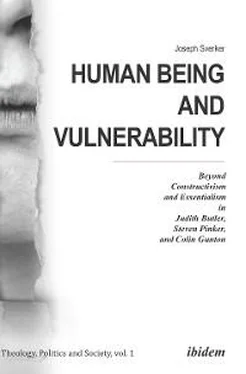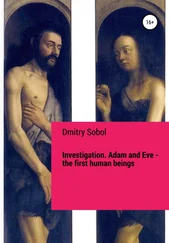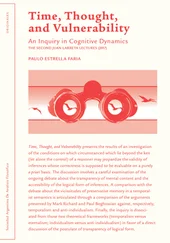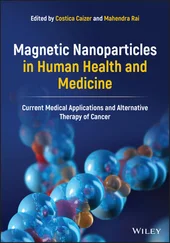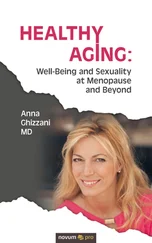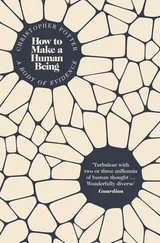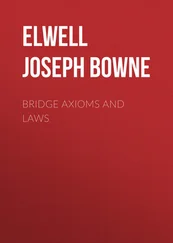Why three such different thinkers? While it should be acknowledged that most theorists working on this question do reject simplistic binaries, much contemporary thought still maintains a dichotomy between the biological and the social. I hope that this study will shed some light as to why this division is so prominent in our society, not least in the school context. I have also chosen these thinkers because their different theories, when brought together in conversation, can inform a view of the human being in which the distinction between the biological and the social is less polarized.
As Proust illustrates in my epigraph, 1the dichotomy between nature and nurture has concrete relevance in the meeting between people and I agree. I want to argue that theoretical discussions on this issue are of practical interest, particularly in institutionalized societies, and not least in the context of school.
Teachers’ engagement with pupils is a pervasive feature of school, as it should be. And in their interaction with pupils, teachers conceptualize the pupils throughout the day. But in this conceptualization of and engagement with the pupil there is an underlying anthropology, a theory of the human being, that is rarely expressed or made explicit. When I contemplated this as a teacher in Sweden, I realized that the implicit anthropology underlying professional discussions in school was incoherent.
To clarify, when my colleagues and I conferred in what is called a pupil welfare meeting to discuss certain learning problems, such as dyslexia, we tended to switch our minds to a biological, not to say biologist, frame where the frontal and lateral lobes of the brain were in focus. But, if we instead were discussing a problem such as an eating disorder, we seemed to switch our minds to a social or cultural mode, thinking in constructivist terms of societal pressure, family situation and so on. However, when back in the classroom the teacher has to find a way to respond to the issue at hand, for in meeting the pupil the teacher needs to somehow make sense of the pupil’s biological and social sides in his or her practice. In the meeting between the teacher and the pupil a dichotomization between biology and the social is likely to be unhelpful but, as is shown here, turns out to even be problematic when coupled with wider questions of anthropology. 2
One such problem that will be addressed already here is what I want to call the “addition model” of nature/nurture, where nature plus nurture equals a self as if two otherwise separate domains magically merge to create a whole. Philosopher and feminist theorist Elizabeth Grosz has similar concerns when she writes that “[b]iology is somehow regarded as the subject minus culture, as if this could result in anything but an abstraction or bare universal category.” 3
This common “solution” to the nature/nurture dichotomy is unsatisfying and problematic, 4but I was not able to fully clarify why this should be so. This prompted me to look further into the question and my “school experience” worked as the entry point into the issue of the dichotomy between nature and nurture. Questions of ontology and anthropology on the nature/nurture divide are important in the school setting, but because the emphasis lies on the interaction between humans and the relation between the human being and institutions, the concerns I raise here are relevant to other areas too.
Considering that many societies are institutionalized, meaning that the state’s influence over citizens becomes materialized in particular buildings and bureaucratic structures where someone will represent the state, the role of institution demands consideration. Here the school is a particularly good place to start as an institution of learning . As I hope to show, learning itself, when institutionalized, highlights the dichotomy between biology on the one hand and the social on the other.
Thus, what follows is primarily an analysis that reveals what the foundational questions behind the nature/nurture dichotomy are. I also suggest ways in which the three thinkers can be of help to overcome that gap. My contention is that only by understanding why biology and the social consistently are pigeonholed into two distinct categories in today’s society will it be possible to move beyond a dichotomy of biologist essentialism on the one hand and social constructivism on the other.
Many others have treated this question with much insight and without polarizing biology and the social. Examples can be found in epigenetics and the postgenomic development within biology to the New Materialist development within, for example, feminist thought and critical theory. 5I will broach this as a theologian, for I want to argue that there are also valuable resources in Christian theology that are largely ignored in secular discussions about the human being. 6Aspects of theological anthropology are relevant for thinking about the human being in contemporary society, particularly as a critical resource. 7But theology will here also work constructively with the other fields of enquiry.
The purpose of this book, then, is to investigate two central issues concerning contemporary anthropological conversations. I want to bring the inconsistency in the underlying anthropological conceptions to the fore in order to return to the question of the concrete relation between the teacher and pupil. What I aim to do is to analyze the divide between a biologist essentialist and a social constructivist understanding of the human being with the help of resources from Christian doctrine and constructively elaborate a perspective on the human being where the polarization of commonly opposed explanations, such as biological, constructivist and theological, is not maintained. In this there is a connection between anthropological conceptions and ethics as well as ontology and ethics. But the ethics that need to be developed as a consequence of my work can only be hinted at here. 8
Interactive interdisciplinarity and human lived reality
My contention is that the political theorist and philosopher Judith Butler, the psycholinguist Steven Pinker and the systematic theologian Colin Gunton each will in various ways help to shed light on and challenge the polarization between social constructivism and biologist essentialism. And while Butler and Pinker respectively can readily be associated with one of these positions neither can be said to belong to it in any simplistic way. They do shed light on the positions as “insiders,” but not without some qualifications.
Interestingly, both Butler and Pinker engage with the nature/culture dichotomy, but to my mind unsatisfactorily in some important ways. Thus, close attention to their respective arguments will better substantiate the constructive engagement that I aim for. The selection of these thinkers will be motivated further, but first something needs to be said about the interdisciplinary approach of this book.
Christian theology is part of the constructive suggestion in this book. My view is that Christian doctrine is a resource for critical and constructive engagement with questions of the human being even when other perspectives are more pervasive and influential in what could be called a post-Christian society. 9But this hinges upon whether theology as “[a]n explanatory language has relevance in people’s lives,” as Dennis Bielfeldt put it. 10I hope to show that this is the case.
The second part of this book will show that Christian theological language has explanatory relevance. But in terms of Christian theological content, I think it could and perhaps even should be a living 11part of a post-Christian culture, if theologians are also aware of the problems, historical and contemporary, of such claims highlighted by, for example, feminist thought. 12For what would the self-professed polyvocality of the post-Christian society be worth if non-secular voices must remain silent unless they leave all normative claims behind?
Читать дальше
